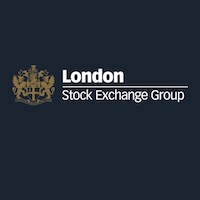News
Integrating Refinitiv: the LSE's challenge
Sunday 21 March 2021

Investors' worries about the Refinitiv takeover have increased over the scale of the London Stock Exchange's challenge to integrate the business, a Financial Times commentary said.
LSE’s shares have sunk more than 25 per cent from a record high in February, a month after it completed the $27 billion purchase of Refinitiv in a deal that was sold to investors as transformational.
Combining Refinitiv's 150,000 data sources with the essential market plumbing owned by LSE would create a data-driven finance incumbent, breaking the link between trading volumes and revenues. Data and analytics made up about three-quarters of its pro forma group revenue for 2020, with capital markets and post-trade services providing the remainder.
“But by the time of LSE's full-year results in March it was obvious that to fulfil its promise, Refinitiv needed major surgery. Shareholders balked at LSE's higher than expected £1bn budget to integrate Refinitiv in the first year,” the FT said.
It did not help that LSE's own data and analytics operations had been slowing. Then last week came a sale by Thomson Reuters and Refinitiv management of nearly two per cent of LSE stock, apparently to settle tax liabilities. “Reasons became plentiful to feel unease about what exactly LSE had bought.”
Worries that LSE lacks the boardroom experience needed to take on a complex, flawed and top-heavy business that by revenue is twice its size have multiplied since February, the FT said.
“As Warren Buffett said: ‘When a management with a reputation for brilliance tackles a business with a reputation for poor fundamental economics, it is the reputation of the business that remains intact.’ Refinitiv's poor economics had repelled potential suitors for at least five years before LSE took the plunge. And though LSE bosses have shown ambition, their brilliance awaits evidence.”
David Schwimmer, LSE chief executive, and Don Robert, chair, have little experience of merger integration. “Moreover, Refinitiv's longstanding problems have no easy fix. Trading screens, by revenue its biggest data market, are also its toughest. Refinitiv's Eikon platform is a distant second behind Bloomberg's ubiquitous terminal, which has been taking share in a shrinking market. Cash has been sunk into modernising and improving Eikon since the Blackstone-led acquisition of Refinitiv in 2018. However, its share continues to be squeezed both by Bloomberg's all-you-can-eat premium product and pick-and-mix options companies such as FactSet and Capital IQ.
“LSE's solution is to retire the Eikon brand, which analysts have interpreted as a tacit surrender of traders' desktop space to Bloomberg. Its replacement, Workspace, is built around open source software that apes the modular flexibility of smaller competitors.
“The hope is to make trading platforms more like Enterprise, Refinitiv's second-biggest data division. Enterprise applies an open-access approach to the huge data collection and distribution network that is a backbone for Refinitiv's many services. Foreign exchange and fixed income products will probably adopt the same modular model, inviting subscribers to shop in a data supermarket rather than buying access to the buffet.”
Reasons for optimism can be found on the transaction side of LSE's business, including its majority stake in Tradeweb for rates and credit markets. Having been relatively slow to adopt electronification, these markets now deliver class-leading growth, and Tradeweb carries the kind of proprietary mission-critical content that is only occasionally found in Refinitiv's other silos, the FT said.
“The media industry provides a parallel. In a world already drowning in data, must-have content gets the highest valuations. Owning the delivery pipes has not been enough. LSE has yet to prove whether transformation will create a financial markets Netflix or a National Grid.” ■
- SOURCE
- Financial Times
- « Previous
- Next »
- 242 of 2177